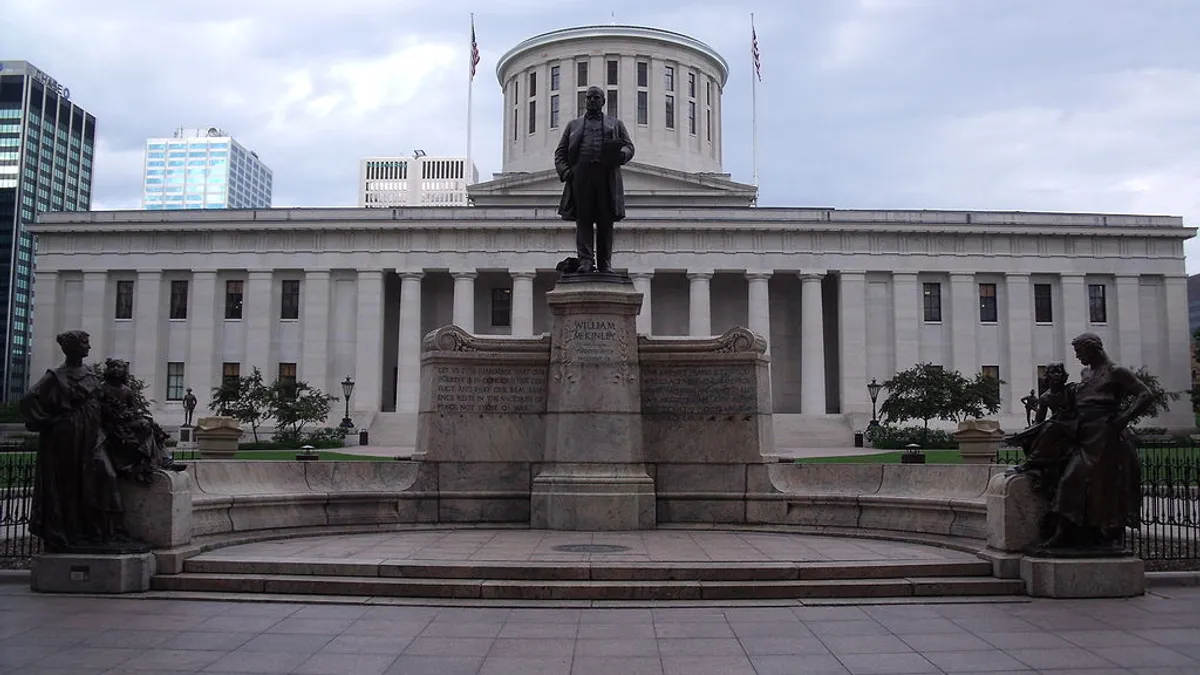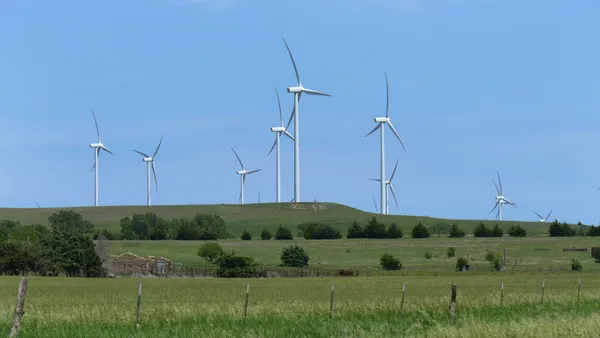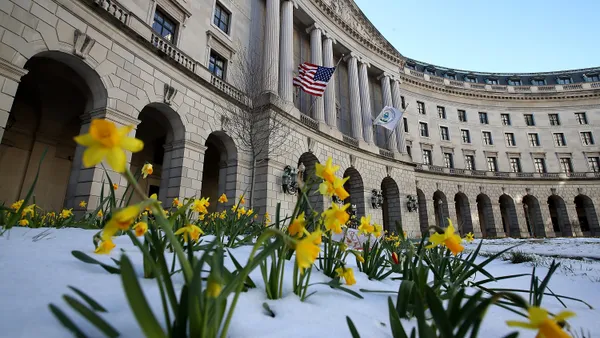Dive Brief:
- A proposed bill (H.B. 114) aimed at eliminating Ohio's renewable energy standard contains a provision allowing customers shopping on the open market for power to bypass paying utility costs that recoups investment from new generation sources, including renewable energy, Columbus Business First reports.
- The proposed provision could impede American Energy Power's plans to build 900 MW of renewable energy in Ohio as part of its plan to replace retired coal-fired plants. At least 35% of AEP's customers buy their power on the open market, the news outlet noted.
- Ohio Rep. Bill Seitz announced plans last month to introduce a bill that would eliminate the state's renewable energy standards in favor of making them voluntary up through 2027, similar to a bill that Gov. John Kasich (R) vetoed earlier this year.
Dive Insight:
Ohio's debate over renewable energy standards is poised to heat up again.
Rep. Bill Seitz, who heads the House Public Utilities Committee, said the bill from last year to make renewable energy standards voluntary for two years didn't go far enough.
H.B. 114, by contrast, would introduce a voluntary renewable energy standard of 12.5% in place until 2027. For energy efficiency, the bill would eliminate the standard by 2027 after a series of phase-downs.
H.B. 114 would also permit customers who shop on the retail market to "opt out of paying any rider, charge, or other cost recovery mechanism" designed to pay for utility electricity from renewable resources, starting in January 2019.
The provision is reportedly a response to AEP's plans to construct 900 MW of renewable energy, part of a settlement agreement with environmental groups approved last year in exchange for income support for aging baseload plants.
AEP is gearing up for a legislative push to re-regulate Ohio's electricity markets, and Seitz cautioned the utility against challenging his renewables bill if it wants to make progress in his committee on other proposals.
"I think AEP is fully aware that a bill with 50-some odd co-sponsors out of the gate would not be a very wise thing to oppose if they expect boxcar three to ever be carried forward by the engine," he told CBF.
Gov. Kasich vetoed last year's bill, meaning the energy efficiency and renewable energy standards will come into force this year after being frozen since 2014. Kasich touted job growth as a primary driver behind his decision to veto the bill.
The first hearing on H.B 114 is scheduled for this Thursday.














